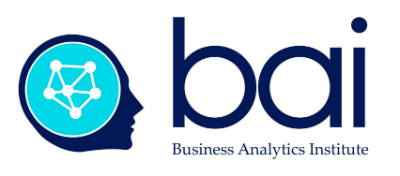Working “harder” in the Digital Age
What does it mean today to work harder and/ or more effectively? The increasing digitalization of the economy has profoundly changed how we think about work. This postulate has roots deep in our current perceptions of management, collaboration, innovation and value. What exactly do we need to know about data and digital technologies to succeed in our jobs and our careers today?
In many firms and in many parts of the economy, Fredrick Taylor’s lessons of the scientific management of physical processes seem clearly outdated. IDC recently suggested that we spend between up to 30 percent of our workday simply looking for information. Collecting, organizing, and analyzing data, whether we work as a cashier in a local supermarket or a sales director of a large multinational corporation, seems largely what work is all about. As Steven Sinofsky argues in his essay on continuous productivity, the value of work is tied to our ability to use information to solve our customers’ problems. If the value of the work we do comes from the services and experiences we create around our products, how do we put a price tag on this information?
How can we best manage our organizations and our communities in the digital age? We have traditionally identified management skills around a specific set of characteristics that have cut across cultures and generations – intelligence, trustworthiness, humaneness, courage, and discipline. Susan Annunzio, in studying the evolution of management, suggested that “e-leadership” needs to go a step further in “fostering an attitude of speed and flexibility… in the new economy.” David Snowden and Mary Boone took this argument one step further in suggesting that management today is tied to the complexity of the problems that have been left to solve. Manfred de Vries sums up the current debate in suggesting that we need to harness information technology to focus on interactions, information and innovation.
The omnipotence of the networked economy has changed our vision of collaboration, team work, and social production. Digital technologies are designed to help teams, companies and communities work over disparate organizational processes, geographies, and time zones. Information technology have proven instrumental not only in lowering transaction costs but in enriching the value of interactions between an organization and its internal and external customers. None-the-less, harnessing IT to organize, motivate and monitor teams at a distance has proven to be a difficult task. If the World Wide Web offers abundant proof of our capability to consume anywhere and at any time, examples of social production enlisting entire networks and communities for the common good are still the exception rather than the rule.
Have digital technologies changed the way we innovate? There is little doubt that advances in enterprise applications in general, and in Internet technologies in particular, have transformed the way we conduct business. The increasing availability of data on individual and group behavior can be leveraged through business analytics to reduce the uncertainty associated with business practice. J. Wu argues that the Internet has fundamentally changed how we think about business: it has impacted not only the structure of our organizations but the sources of competitive value themselves. Charles O’Reilly and Michael Tushman propose the notion of “ambidexterity “– we use digital technologies not only to exploit existing assets and capabilities but it to explore the foundations of business logic to avoid being “rendered irrelevant by changes in markets and technologies”.
Has the increasing digitalization of the economy modified our perception of value(s)? Does the nature of Twitter, Facebook, and other forms of social media reflect the core values of the market economy or have they privileged other types of behavior and belief systems? Joseph Pine and James Gilmore insist on the omnipotence of experience in modern economies – they argue that value today is directly associated with levels of consumer engagement in networks and organizations. Jason Lanier thought so in his seminal article on Digital Maoism – the medium itself tends to offer wider exposure to opinion at the expense of demonstrable proof. Scott Adams has argued along similar lines in the political arena - the nature of the digital medium seems to favor persuasion over policy. For his part, Arun Sundararajan argues that the success of the sharing economy will depend upon peer to peer exchanges of information, services and goods. In such a scenario, social, political or economic value depends upon information technology’s ability to amplify meaning, culture and trust.
What do we need to know about management, collaboration, innovation and value to succeed in the Digital Age? Although instant access to an abundance of information is at our fingertips, organizing and applying the data to actual customer challenges continues to be a prized organizational skill. Deciphering fact from opinion, collecting data to enhance managerial decision-making remains a prerequisite to effective management. We are judged today not only by the value what we do today, but by the digital traces we leave behind in our organizations and communities. If data and digital technologies provide the bread and butter of business analytics, learning to evaluate and communicate information to inspire action is the heart and soul of work today.
The topic of Working in the Digital Age provides one foundation of our Executive Education offer in business analytics. For a broader view of this vision can be found in our previous post, If business analytics is simply statistics applied to business, why are business analytics skills so rare? In our next post, we will distinguish business analytics from data science, and underline how investing in business analytics helps management improve decision-making at all levels of the organization.


